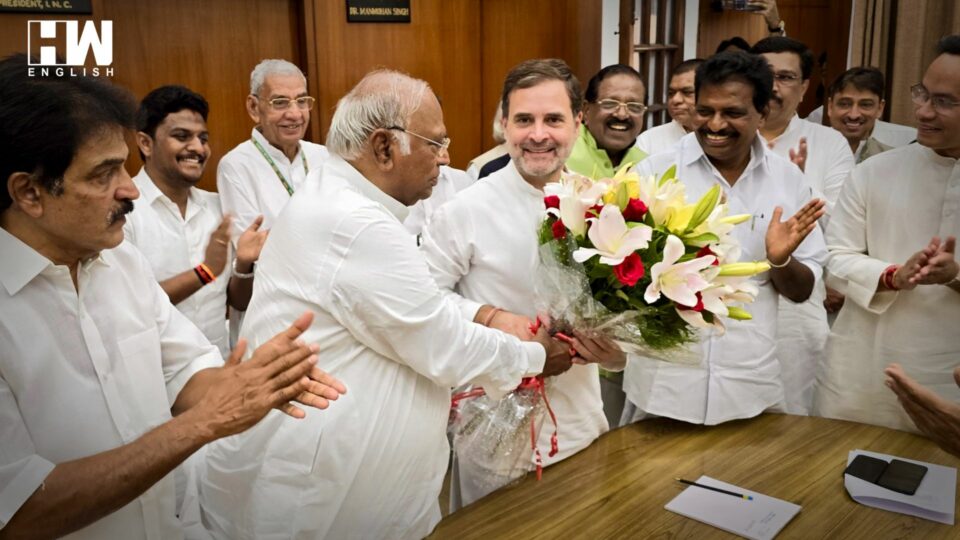For the first time in ten years, the Lok Sabha will have a Leader of the Opposition (LoP) as Congress leader Rahul Gandhi steps into this crucial role. This development marks a significant shift in India’s parliamentary landscape, reflecting the changing political dynamics following the 2024 general election.
The Congress party’s journey to reclaim this position has been a challenging one. Despite being the second-largest party in the Lok Sabha in 2014 and 2019, it fell short of the required numbers to stake a claim to the LoP post. An opposition party needs at least 55 seats, or 10 percent of the total seats in the 543-member Lok Sabha, to be eligible for this position.
In 2014, the Congress suffered a major setback, winning only 44 seats and losing both its ruling status and the LoP position. The party’s request for the LoP post was subsequently denied by then Lok Sabha Speaker Sumitra Mahajan. The 2019 election saw a marginal improvement with 52 seats, but still insufficient to secure the coveted role.
However, the 2024 election has changed the game. With 99 seats under its belt, the Congress has not only crossed the threshold but has also firmly established itself as the principal opposition in the country.
The Leader of the Opposition, while not a constitutional post, is a statutory position recognized by the Salary and Allowances of Leaders of Opposition in Parliament Act, 1977. This act defines the LoP as the member who leads the party in opposition to the government with the greatest numerical strength.
The role of LoP is steeped in history, dating back to the pre-Independence era. Notable figures like Motilal Nehru were among the early leaders to receive statutory recognition in this capacity. Post-Independence, the position has been integral to India’s parliamentary democracy, with Dr. Ram Subhag Singh serving as the first LoP in the Lok Sabha from 1969 to 1971.
As the LoP, Rahul Gandhi will play a crucial role in parliamentary proceedings. Often referred to as the “shadow prime minister,” he will be responsible for forming a shadow Cabinet, mirroring the roles of the government’s Cabinet and ready to take over if the incumbent government falls.
Gandhi’s new role comes with significant responsibilities and powers. He will be a member of crucial committees, including Public Accounts, Public Undertakings, Estimates, and various Joint Parliamentary Committees. Moreover, he will have a say in the appointment of key bureaucrats and will be part of selection committees for heads of statutory bodies such as the Central Vigilance Commission, Central Information Commission, Central Bureau of Investigation, National Human Rights Commission of India, and the Lokpal.
Interestingly, Rahul Gandhi becomes the third member of the Gandhi family to hold this prestigious position. His father, Rajiv Gandhi, was the first family member to become LoP in the Lok Sabha in 1989-90, followed by his mother, Sonia Gandhi, who held the post from 1999 to 2004.
As Rahul Gandhi assumes this critical role, all eyes will be on how he leverages this position to provide the necessary checks and balances on the ruling government, ensuring that diverse perspectives are considered and alternative viewpoints are represented in India’s vibrant democracy.
Also Read: India Experienced 65 Exam Paper Leaks Since 2019: Report
As an independent media platform, we do not take advertisements from governments and corporate houses. It is you, our readers, who have supported us on our journey to do honest and unbiased journalism. Please contribute, so that we can continue to do the same in future.

